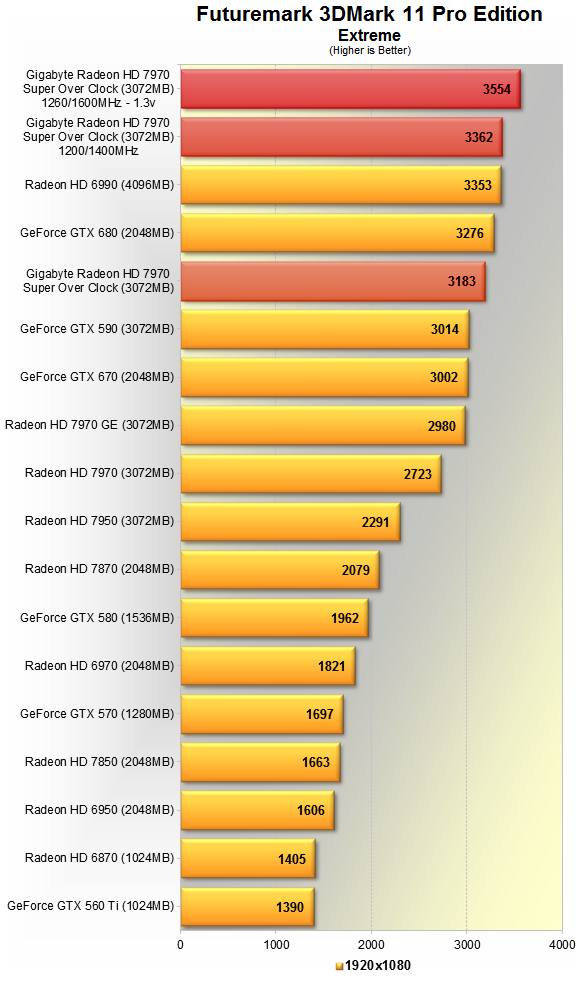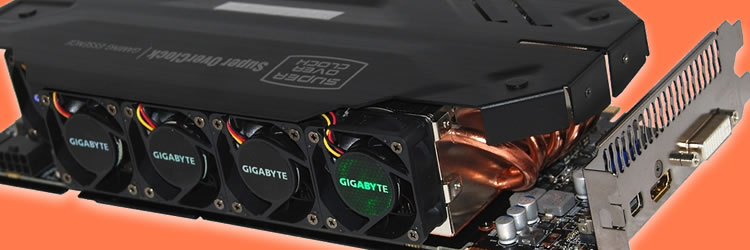Test System Specs & 3Dmark 11
Core i7 Test System Specs
- Intel Core i7-3960X Extreme Edition (3.30GHz)
- x4 2GB G.Skill DDR3-1600(CAS 8-8-8-20)
- Gigabyte G1.Assassin2 (Intel X79)
- OCZ ZX Series (1250w)
- Crucial m4 512GB (SATA 6Gb/s)
- Gainward GeForce GTX 680 Phantom (2048MB)
- Gainward GeForce GTX 670 Phantom (2048MB)
- Gainward GeForce GTX 680 (2048MB)
- Gigabyte GeForce GTX 590 (3072MB)
- Gigabyte GeForce GTX 580 (1536MB)
- Gigabyte GeForce GTX 570 (1280MB)
- Gigabyte GeForce GTX 560 Ti (1024MB)
- AMD Radeon HD 7970 GHz Edition (3072MB)
- Gigabyte Radeon HD 7970 SOC (3072MB)
- HIS Radeon HD 7970 (3072MB)
- HIS Radeon HD 7950 (3072MB)
- HIS Radeon HD 7870 (2048MB)
- HIS Radeon HD 7850 (2048MB)
- HIS Radeon HD 6990 (4096MB)
- HIS Radeon HD 6970 (2048MB)
- HIS Radeon HD 6950 (2048MB)
- HIS Radeon HD 6870 (1024MB)
- Microsoft Windows 7 Ultimate SP1 64-bit
- Nvidia Forceware 301.42
- AMD Catalyst 12.7


According to 3Dmark 11 Pro, the Gigabyte HD 7970 SOC is 17% faster than a standard HD 7970 and 7% faster than the GHz Edition card. Without any voltage modifications, we were able to reach a core clock speed of 1.2GHz resulting in a score of 3362pts, 6% higher than Gigabyte's factory overclock and 23% faster than the standard 7970.
Eventually, we arrived at a core clock of 1260MHz and 1600MHz for the GDDR5 memory which boosted the 3Dmark score to 3554fps – 31% faster than the standard 7970 and quicker than both the previous-generation dual-GPU cards.
